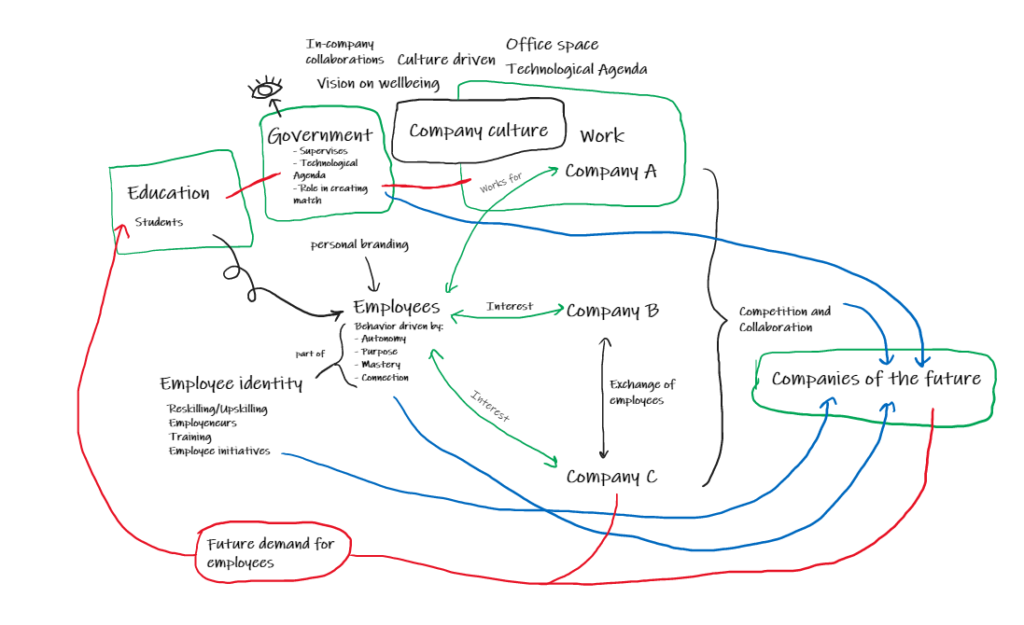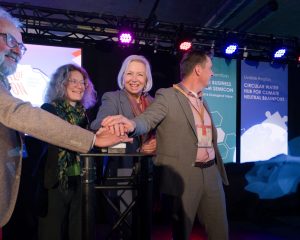PDEng Design Challenge
In an intense last week of January, teams of PDEng trainees worked on challenges presented to them by companies. One of the challenges which a team worked on was the ‘Future of Work’ demo project of Eindhoven Engine.
Future of work
The challenge we gave them was as follows. Hybrid forms of (remote) working have an impact on communication, connection and creativity in teams (at the very least) – an impact that we are beginning to understand. However, our reflection should have started earlier. What is the purpose of work? Can we create an environment and approach that moves away from linear, predetermined thinking and opens doors to more creativity and eventually more fun? Can we use this opportunity to start working ‘smarter’, not just doing the same with smarter technology? Can we use tools that facilitate efficient ways of working, such that we do not have to adapt to existing procedures and platforms but instead redesign processes and support tools in alignment with one another? How can we create accidental meetings in a virtual environment, the chaotic situation that invites us to reinvent ourselves?

The team came up with some interesting ideas that we are going to take further when we define our demo project on the Future of Work. They constructed a causal loop diagram, from which they developed two possible interesting scenarios: working smart instead of hard (with creative jobs and a focus on the human dimension of work) and work as a learning process (lifelong learning, upskilling/reskilling, use of learning machines to support this match between work/learning). The team observed a tendency to move away from ‘learning in order to work’ towards ‘working in order to learn’. This focus also has huge potential in helping to define University 4.0. Eventually, they also paid attention to the ‘network employee’: the (knowledge) worker who works for different projects and no longer for a company.
Lots to think through in relation to these highly creative, challenging ideas which are at the center of what corporates are being confronted with. The next step is a pilot project in order to work further on detailing these possible scenarios, after which Eindhoven Engine will launch the Future of Work as a supported demo project.
For more information, please contact Walter Baets, Eindhoven Engine Academy

